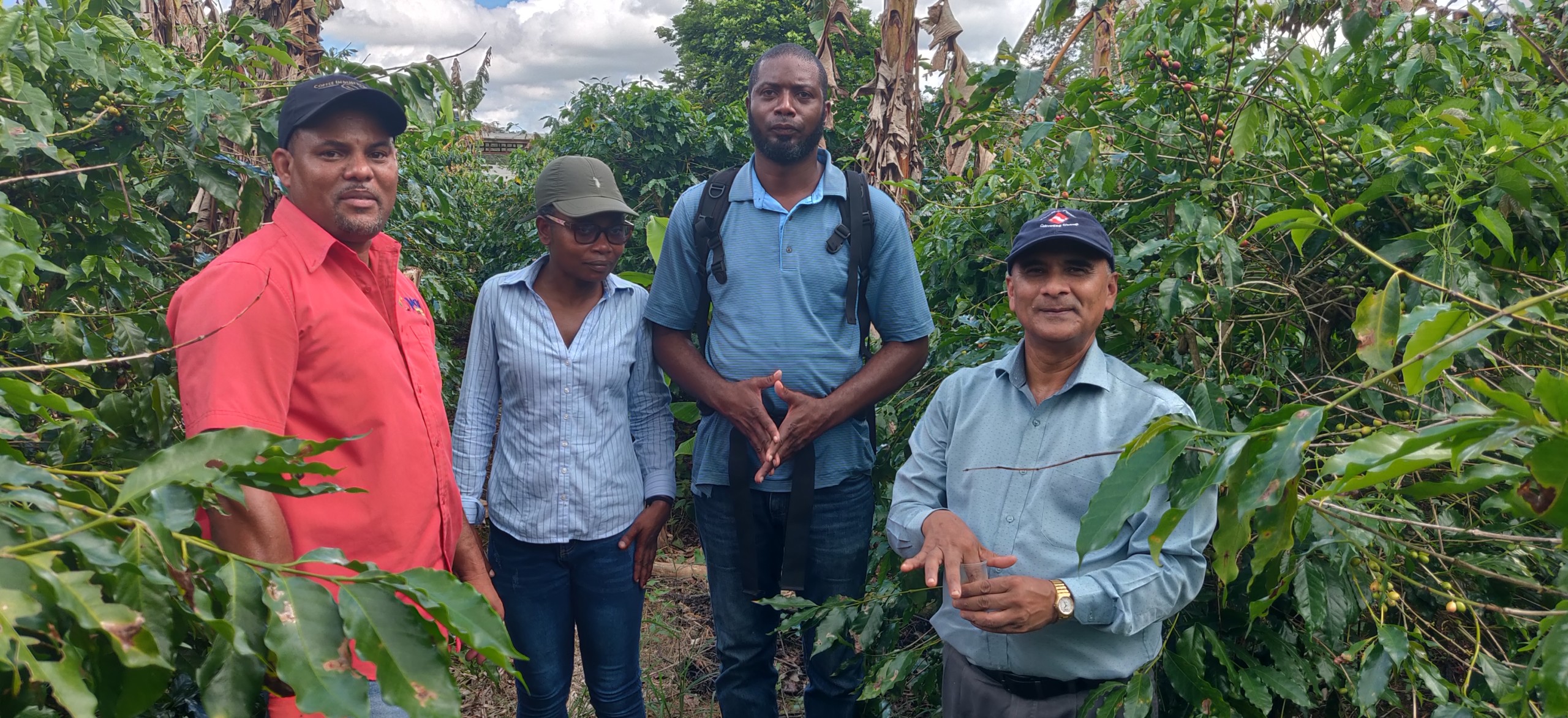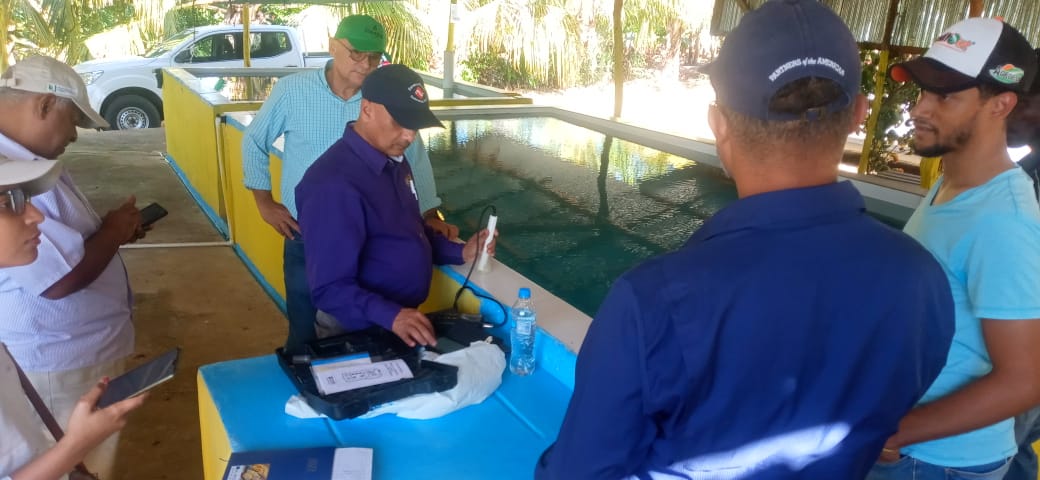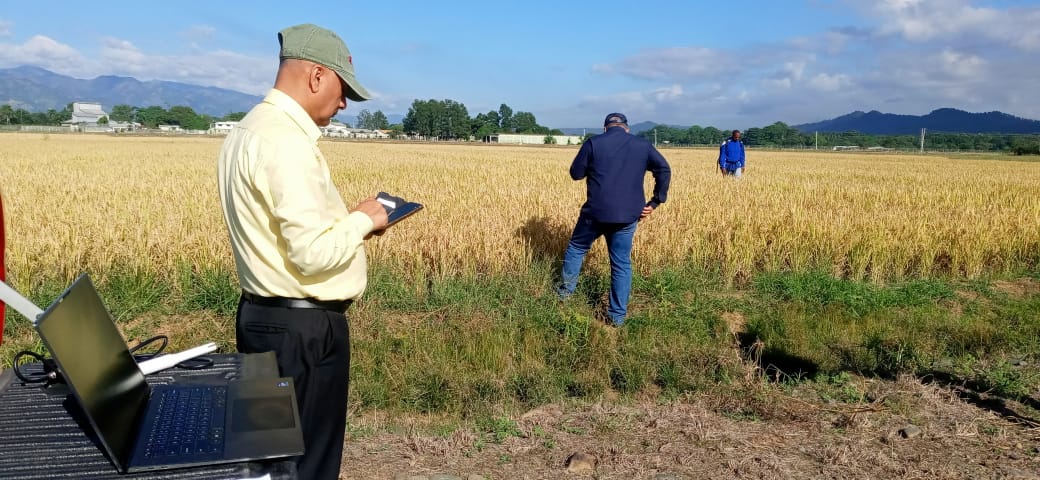Prairie View, Texas – College of Agriculture and Human Sciences Associate Professor Ram Ray, Ph.D., P.E., recently took three international trips, offering his experience on climate change impacts, soil health management, and carbon sequestration. The goal is to provide information and resources to farmers and researchers looking to improve conditions in farming and production in their region.
In early October 2022, Ray visited Kingston, Jamaica, and the cities of Santo Domingo, La Vega, Bano, Santiago, and Mao in the Dominican Republic in December 2022, followed by trips to Rabat and Marrakesh in Morocco in January 2023.
“What I appreciate the most about these trips is the actual interaction with people,” Ray said. “They were so happy to see us and have us there in person to help them. I brought my carbon and soil health monitoring sensors [to Jamaica], and they were excited to see that we have tools that can measure on the spot.”
Ray went to Kingston on behalf of Farmer-To-Farmer, funded by the United States Agency for International Development (USAID). The program requested Ray’s presence to help local coffee farmers boost their production and soil health while improving carbon sequestration (capturing carbon used by plants or storing it in soil from the atmosphere rather than relying solely on noxious greenhouse gas emissions).
Ray suggested using either crop residue or mixed cropping for improved soil health, enhanced carbon sequestration, and better production. “This was my third in-person visit to The Dominican Republic, but first to Jamaica and Morocco,” Ray said. “I have seen good efforts from the farmers, and they have started climate-smart farming to help with more carbon capture, which improves soil health.”
His Dominican Republic trip was a follow-up to a previous visit from a year ago. The Organic Banana Farmers Association (BANELINO) invited him to help explain carbon sequestration and train university technicians and researchers on this method. He also met with policymakers to advocate for climate change and reiterated the importance of a quality environment for better, long-term production. Ray provided resources and options for them to purchase the necessary equipment to monitor and quantify greenhouse gases in the long term and help with better carbon capture.
Trips like the one Ray took to the Dominican Republic are filled with learning moments for him as well. They helped him to better understand the innovation that the farmers use to creatively solve problems. Through this understanding, Ray can envision how his experience can assist those who do not have direct access to modern-day technologies.
“I was able to see how people work with local technology using limited resources,” Ray said. “They do not have thousands of dollars to buy tools for research. So, I was amazed to see how much effort they have made by developing local equipment and tactics.”
His trip to Rabat, Morocco, included speaking with three federal institutions and hosting seminars for olive tree plantation farmers interested in carbon sequestration. In order to receive a carbon credit, farmers must measure how much carbon they are sequestering. Their current method is incredibly laborious, as they already have millions of trees to tend to, so they wanted to aid in quantifying the greenhouse gas emissions and effectively capturing short and long-term carbon in olive trees and other plants.
Ray suggested using sensors during the growing period to capture carbon or satellite data available to them. On a personal note, this trip was special to Ray because it was his first time visiting Africa. As a researcher, the trip was even more rewarding because he is now connected with more like-minded researchers to aid in his work.
“I now have an even larger network, so I can get data that researchers are collecting from different areas, and they are very happy to share with me,” Ray said. “That is one of the great advantages I have.”
These trips also serve as a reminder to ensure that the farmers understand the technical side of the science he teaches them, a core priority of the college’s extension program.
“Researchers must speak the farmer’s language,” Ray said. “We need to shift our vocabulary, so we are translating the information well.”
Ray will continue to connect with all the researchers he encountered on his trips and has made tentative plans with some of the institutions to have their students study at PVAMU and earn a master’s degree in Natural Resources and Environmental Sciences (NRES). This new degree program will equip students to become skilled researchers and bring science to farmers in their countries.
And his teaching opportunities won’t stop there. Ray received two invitations to train staff in the summer of 2023 from the University of Guyana Department of Environmental Sciences and the College of Agriculture, Science, and Education (CASE) in Port Antonio, Jamaica. Ray says he will continue to devote time to these trips to improve agricultural methods internationally and build strong connections across the globe.
Pascale Mondesir
Communication Specialist II
pamondesir@pvamu.edu



